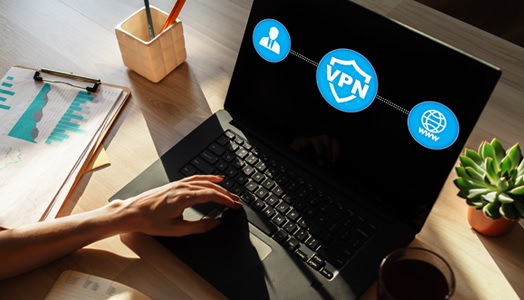Virtual Private Networks (VPNs) are popular tools for protecting online privacy and securing sensitive data. However, to get the most out of a VPN, it’s important to follow best practices and take steps to ensure that your online identity and data are properly protected. In this blog post, we’ll explore some best practices for using a VPN to protect your online identity and data.
1. Choose a reputable VPN provider
Not all VPN providers are created equal. Choose a reputable provider that has a strong track record of protecting user privacy and securing data.
2. Enable the kill switch
A kill switch is a feature that automatically shuts down your internet connection if the VPN connection is lost. This prevents your data from being exposed if the VPN connection is interrupted.
3. Use strong encryption
Make sure your VPN provider uses strong encryption to protect your data. The recommended encryption standard is AES-256.
4. Disable IPv6
IPv6 can leak your IP address, so it’s best to disable it when using a VPN.
5. Use a secure DNS
Some VPN providers offer their own DNS servers, which can provide an additional layer of security. If your VPN provider doesn’t offer a secure DNS, consider using a third-party DNS like Cloudflare or Google DNS.
6. Connect to a server in a location with strong privacy laws
Some countries have strong privacy laws that protect user data. If possible, connect to a VPN server located in a country with strong privacy laws.
7. Avoid free VPNs
Free VPNs may seem appealing, but they often have poor security and privacy practices. Avoid using free VPNs and opt for a paid provider that offers strong privacy and security features.
8. Regularly update your VPN software
VPN providers often release updates that address security vulnerabilities or improve performance. Make sure to regularly update your VPN software to ensure you’re getting the latest security features and bug fixes.
9. Don’t log in to personal accounts while connected to a public Wi-Fi network
Public Wi-Fi networks are often unsecured, which means that your data can be intercepted by hackers. Avoid logging in to personal accounts (like email, social media, or banking) while connected to a public Wi-Fi network, even if you’re using a VPN.
10. Avoid using VPNs for illegal activities
While VPNs can help protect your online privacy, they can also be used for illegal activities like hacking or accessing copyrighted material. Make sure to use your VPN for legal purposes only.
11. Test your VPN connection before using it
Before using your VPN to access sensitive data or conduct important online activities, test your connection to make sure it’s working properly. You can use websites like ipleak.net or dnsleaktest.com to check if your VPN is leaking any information.









